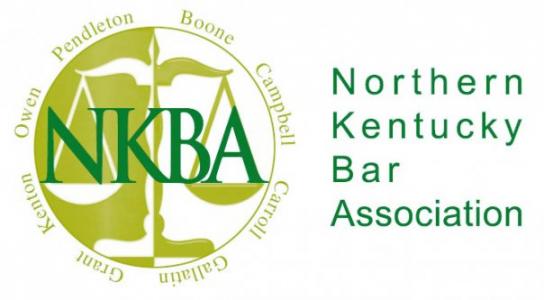Blog
Sexting - A Big Problem for Schools
A 17-year-old boy asks his 16-year-old girlfriend to send him a nude photo of herself. Hoping it will show him how much she cares about him, she sends him a text message containing a nude photo. Some months later the couple breaks up, and the now ex-boyfriend forwards her photo to his friends. The image spreads through the school. The formerly outgoing and happy young lady is now teased and taunted. Her grades fall and she refuses to go to school. As many school administrators know this case is far from an isolated incident.
“Sexting,” the practice by which people forward sexually explicit images via text message, has become increasingly common. According to NoBullying.com, about 22% of teen girls have admitted to sending these photos, where only 18% of boys have admitted to the same. Additionally, according to the site, 33% of college students (between the ages of 18 to 24), have at one time or another sent a nude or semi-nude photo to another person.
When young person sends a nude or semi-nude photo or sexually explicit message, he/she likely believes that the message will be for the receiver’s eyes only. Teens (and many adults) do not realize that once something is out on the internet it is out there forever. The potential long-term damage sexting can have on students is vast. Most teens do not understand the potential implications that sexting may have on their futures, nor are they prepared for the emotional trauma that can follow.
Searching Cell Phones
It is becoming more commonplace for school administrators to have to address these situations. Once rumors start to fly, the only way administrators can determine whether sexting has actually taken place and, if so, which parties were involved is to (a) ask students or (b) search cell phones as part of an investigation. Depending on the facts, searching a student’s cell phone without a warrant may violate the Fourth Amendment. Likewise, it is at least arguable that searching open text messages on a cell phone without consent violates the Stored Communications Act. To avoid violating these laws, school administrators should seek the consent of a student and his or her parents before searching a cell phone as part of an investigation.
Even if the student paid for the phone and pays the phone bill, an argument could be made that consent from parents plus in loco parentis overrides a student’s refusal to consent to the phone being searched. To avoid this difficult question, districts can try to obtain consent from both students and the parents to search a cell phone.
Fourth Amendment
The U.S. Supreme Court held in New Jersey v. T.L.O., 469 U.S. 325, 341 (1985), that school officials may search students as long as the search is reasonable; that is, the search must be justified at its inception and reasonable in scope. According to the Court:
Under ordinary circumstances, a search of a student by a teacher or other school official will be “justified at its inception” when there are reasonable grounds for suspecting that the search will turn up evidence that the student has violated or is violating either the law or the rules of the school. Such a search will be permissible in its scope when the measures adopted are reasonably related to the objectives of the search and not excessively intrusive in light of the age and sex of the student and the nature of the infraction.
Id. at 341-42.
School administrators can take a few steps to make it more likely that searches of cell phones in sexting investigations pass Fourth Amendment muster. First, in some instances administrators can rely on information provided by technology to determine whose phone to search. Second, while common sense indicates that sexting is a violation of school rules, explicitly prohibiting it in a school district policy or a student code of conduct will make it clear. Third, it is likely useful to provide notice to the parents as soon as possible.
Tell the Parents of All Students Involved
Administrators should notify parents promptly upon discovering that their child is the subject of, is in possession of, or has sent inappropriate pictures. Contacting parents immediately should demonstrate that the pictures were viewed for investigative purposes only, dissuading parents from pursuing child pornography charges.
Parents should be told of this dangerous behavior, and administrators should follow abuse and neglect reporting statutes if they fear a parent’s reaction might be violent. Any concerns regarding a parent’s potential overreactions are outweighed by the district’s duty to act in place of the parents while their children are at school.
Reporting to Police
Kentucky requires school districts to report to the police or other law enforcement representatives certain crimes that have happened on school grounds. It may come as a surprise to school administrators that sexting, depending on the specific circumstances, can qualify as a felony. In fact, students in a number of states have been charged criminally and convicted of violating child pornography laws by sexting. Dealing with responsible law enforcement representatives can often limit or avoid such criminal prosecutions.
For example, students likely could be prosecuted for sexting under Ohio’s Illegal Use of Minor in Nudity Oriented Material or Performance statute, which prohibits “[p]hotograph[ing] any minor . . . in a state of nudity, or creat[ing], direct[ing], produc[ing], or transfer[ing] any material or performance that shows the minor in a state of nudity . . . .” Under the Ohio statute, both of the students in the example at the beginning of this article could be prosecuted. The girlfriend photographed herself nude and transferred the nude photo to her boyfriend; the boyfriend further transferred the nude photo to others.
Kentucky law states:
KRS 531.340 Distribution of matter portraying a sexual performance by a minor.
(1) A person is guilty of distribution of matter portraying a sexual performance by a minor when, having knowledge of its content and character, he or she:
(a) Sends or causes to be sent into this state for sale or distribution; or
(b) Brings or causes to be brought into this state for sale or distribution; or
(c) In this state, he or she:
1. Exhibits for profit or gain; or
2. Distributes; or
3. Offers to distribute; or
4. Has in his or her possession with intent to distribute, exhibit for profit or gain or offer to distribute, any matter portraying a sexual performance by a minor.
(2) Any person who has in his or her possession more than one (1) unit of material coming within the provision of KRS 531.300(2) shall be rebuttably presumed to have such material in his or her possession with the intent to distribute it.
(3) Distribution of matter portraying a sexual performance by a minor is a Class D felony for the first offense and a Class C felony for each subsequent offense.
For a breakdown of state by state sexting laws, go to Cyberbullying Research Center. When in doubt, school administrators are well-advised to inform the police of sexting and allow them to conduct a criminal investigation.
Reporting Suspected Child Abuse and Neglect
KRS 620.010 explains children’s rights under Kentucky law - children have certain fundamental rights which must be protected and preserved. These include but are not limited to, the rights to adequate food, clothing and shelter; the right to be free from physical, sexual or emotional injury or exploitation; the right to develop physically, mentally, and emotionally to their potential; and the right to educational instruction and the right to a secure, stable family.
Depending on the state’s definition of abuse and neglect and depending on the visual depiction in the sexted photograph, school districts may have a legal obligation to report sexting under child abuse and neglect reporting statutes.
Minimize School Administrator Exposure to Child Pornography Charges
School administrators should take steps to avoid being accused of possession of child pornography by prosecutors or disgruntled parents. This may simply involve turning over confiscated evidence of sexting to the police immediately.
School administrators should also take steps to avoid charges of disseminating child pornography. A school administrator who discovers sexting should not share the images with other school employees much less non-employees and should not transfer or transmit the images to any other devices, such as printing or emailing the image.
Discipline the Students Involved
School districts should consider disciplining all students involved in the sexting, which includes the student featured in the image, students who received the image (unless they deleted it immediately), and students who disseminated the image, as equally as possible. Please note that prompt deletion of child pornography does not protect a person from potential criminal charges. Possession, whether it is current or previous, could subject someone to prosecution.
Author: Donald J. Ruberg, Esq. - Don specializes in school and administrative law and represents several school board across Kentucky.







